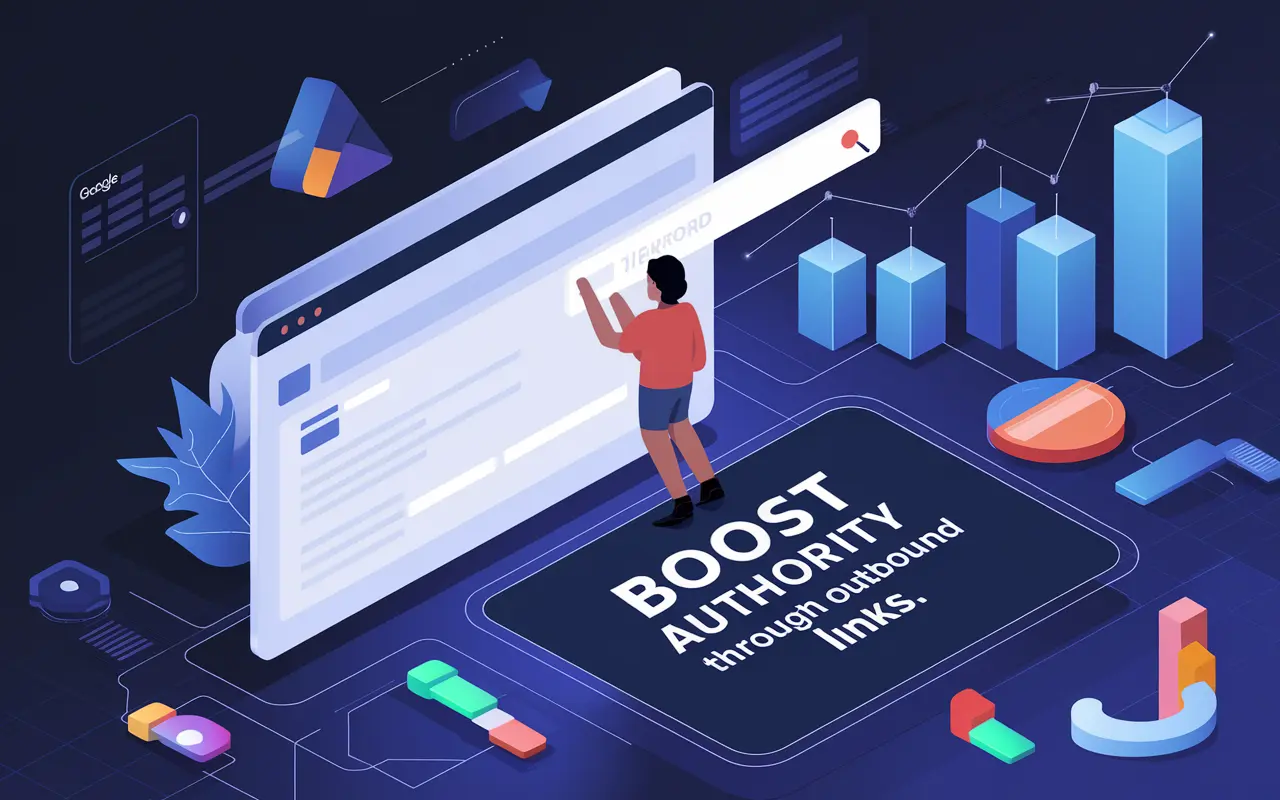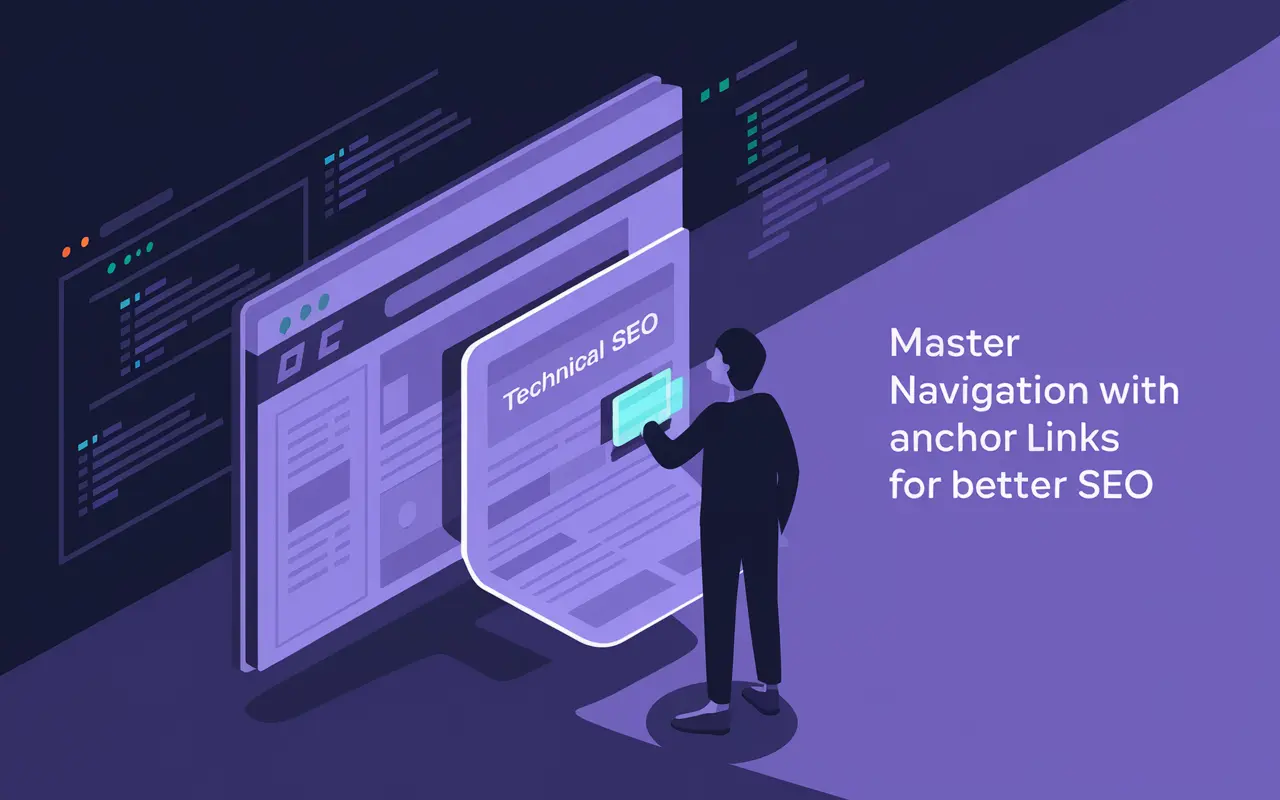Understanding Outbound Links and Their SEO Value
Outbound links, also known as external links, are hyperlinks that point from your website to another domain. These links are crucial in the SEO ecosystem because they connect your content to authoritative sources, enhancing credibility and providing additional context for users and search engines.
In the broader SEO strategy, outbound links help paint a more trustworthy and informative content landscape. By linking to relevant, high-quality sites, businesses can signal to search engines that their content is credible, enhancing the chance of improved rankings and user trust—two key pillars in a successful digital marketing strategy.
Key Takeaway
Outbound Links enhance SEO by improving content relevance and user trust while signaling quality to search engines—boosting credibility and authority.
Why Outbound Links Are Important for SEO Performance
Outbound links play a vital role in demonstrating the depth and trustworthiness of your content. Search engines like Google use outbound link behavior to evaluate the topical relevance and informational value of a page. Quality outbound linking, especially to authoritative sites, helps your website:
- Improve E-E-A-T (Experience, Expertise, Authoritativeness, Trustworthiness)
- Build user trust by referencing respected sources
- Boost contextual relevance for better keyword alignment and topic association
Incorporating strategic outbound links also aids in directing users to additional resources, providing value that keeps them engaged with your brand for longer—even if it’s off your site.
Best Practices for Using Outbound Links in SEO
To make the most of outbound linking, follow these actionable SEO best practices:
- Link to Authoritative, Trusted Sites: Ensure the domains you link to have high domain authority and are recognized in your niche.
- Use Relevant Anchor Text: The clickable text should describe the linked page clearly—avoid generic terms like “click here.”
- Don’t Overlink: Excessive external links can overwhelm users and appear spammy. Be selective and strategic.
- Open Links in a New Tab: Use target=”_blank” to keep users on your site while allowing them to explore the external link.
- Identify Sponsored/Guest Links: Use rel=”nofollow” or rel=”sponsored” tags for paid or affiliate links to stay compliant with Google’s guidelines.
- Audit Your Outbound Links Regularly: Check for broken links or links pointing to outdated or compromised sites.
How Outbound Links Work Within the SEO Ecosystem
Outbound links contribute behind the scenes in various ways. They serve as indicators of good SEO hygiene and content reliability. Here’s how they function technically and contextually:
Technical Role
- Outbound links use the <a> (anchor) HTML tag to point users to another domain.
- Search engine crawlers follow (or recognize nofollow directives) on these links for context and trust signals.
- Use of link attributes like rel=”nofollow”, rel=”sponsored”, and rel=”ugc” controls link equity flow and compliance.
Contextual Role
- Reinforces the topical structure of your content.
- Adds trust and authority through citation of credible external sources.
- Improves semantic understanding for on-page keywords through related external content.
| Outbound Link Type | Use Case | Impact on SEO |
|---|---|---|
| Dofollow (Default) | Linking to high-authority sources | Passes link equity, boosts credibility |
| Nofollow | Paid links, user-generated content | No link equity, but avoids penalties |
| Sponsored | Affiliates or paid endorsements | Disclosure ensures Google compliance |
| UGC (User-Generated Content) | Forums, comments | Mitigates risk from user content |
Case Study: Outbound Linking Boosted Blog Authority by 42%
Problem: Low Page Trust and Time on Site
A mid-size travel blog struggled with building domain authority and retaining users on key blog posts. Bounce rates were high, and engagement was low even with strong internal linking.
Solution: Strategic Use of Outbound Linking
The SEO team implemented high-quality outbound links to government travel advisories, weather forecast sites, and tourism boards. Additionally, anchor texts were optimized for contextual relevance, and UX was improved with outbound links opening in new tabs.
Results: Increased Authority and Engagement
The campaign led to a 42% increase in average session duration, a 33% drop in bounce rates, and a +15 improvement in Domain Authority within 4 months—even without acquiring new backlinks.
Common Mistakes to Avoid When Using Outbound Links
- Linking to Low-Quality or Spammy Sites: This can damage your credibility and search rankings.
- Overusing Outbound Links: Too many can be distracting and potentially viewed as manipulative.
- Using Irrelevant Anchor Text: Anchor text should always reflect the content of the destination page.
- Neglecting to Mark Sponsored Content: Paid or affiliate links must use appropriate "rel" attributes.
- Letting Links Open in Same Window: Users leave your site—hurting page views and reducing engagement time.
Related SEO Terms
Backlinks: Inbound links from other websites to yours. While outbound links point out, backlinks point in and affect authority.
No-Follow Link: A link that prevents link equity from being passed to the linked website. Often used for sponsored or user-generated links.
Domain Authority: A ranking metric developed by Moz that predicts how likely a site will rank in SERPs based on link profile strength.
FAQs About Outbound Links
Outbound links point from your website to another, while inbound links (or backlinks) are links from other websites pointing to your site.
Yes, when linking to reputable and relevant websites, outbound links can enhance your content’s trust and topical relevance, indirectly influencing rankings.
No, only use ‘nofollow’ for paid, affiliate, or user-generated links. High-quality organic outbound links should be dofollow to signal openness and trust.
There’s no fixed number, but linking excessively can disrupt user experience and dilute page focus. Use them contextually and sparingly.
No, linking out to trusted sources won’t harm your authority. In fact, authoritative linking underscores your credibility to users and search engines.
Conclusion: Outbound Links Support SEO Growth Through Credibility and Context
Outbound links play a strategic—and often underestimated—role in improving SEO performance. When directed to the right sources, these external references provide relevance, authority, and enhanced user experience that collectively signal trust to search engines. Whether you’re citing research, linking to partners, or referencing government data, make sure your links add value.
Incorporate outbound linking wisely in your content strategy and combine them with other on-page and off-page SEO techniques for a well-rounded SEO program.






